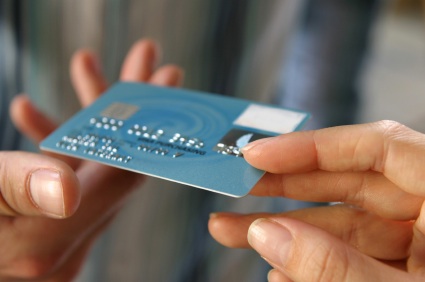Protect Your Company’s Assets – It’s Your Job!
Your outside sales position comes with some assets that are not always thought of as benefits.
Items such as:
Company Vehicle & Company Fuel Card
Company Credit Card
Company Issued Smart Phone or PDA
Company supplied laptop Computer
There are other items as well and the premise is the same with all of these devices. They are designed to help you be the best that you can be in the sales position, reducing the need for inside assistance, reducing administrative costs, and increasing convenience for the user.
These items present some significant opportunities for unintended neglect as well as abuse and should be managed carefully.
Most long term sales professionals know how these items play into performance evaluations, company policies, and continued employment, yet a recap could never hurt as there are always new professionals entering the workplace.
Electronic Devices – Your Responsibilities and Changing Times
The world is changing, and you have no choice but to be a part of it. Your access to company and customer data is an important convenience, and it creates some rather interesting changes as compared with a few years ago.
Your laptop computer or even a pocket-sized device can easily come up missing and could potentially contain the following information that you currently may take for granted:
- Privileged company information (Your company’s trade secrets)
- Customer/Client information (contact lists, phone, addresses)
- Customer Confidential Information (Credit card, financial, and other)
- Your company’s system access information
The information above, as well as other important information that could be on drives, media cards, etc, can send your company’s IT professionals into “Def Con One” in terms of actions to protect customer’s privacy and your company’s systems and information.
Losing your laptop or Blackberry/iPhone/PDA sends into action a wave of activities designed to protect that information. This could include “wiping” which is the remote erasing of all of the data on either device. This falls under the category of “better safe than sorry.”
Depending on what industry you are in, there is also the possibility of federal laws being violated. If you are in the health or medical industry, which includes health insurance, your responsibilities are even more strenuous, because of health information privacy.
Losing your brief case would be tough, and would potentially put some information in the hands of some who might read it or use it incorrectly. Losing your PDA creates a different exposure that includes the possibility of improper access of gigabytes of information (thousands of briefcases) and a gateway to other information.
The most important action you can take if you make the mistake is to inform your IT department immediately after the problem happens. Before that, take all necessary steps to protect it.
Company Vehicles & Fuel Card
Fewer companies provide the benefit of company vehicles now, and that is fitting. The “tests” that qualify sales professionals, even though they are in outside sales are strenuous, and limiting.
If you do have a company vehicle, you should recognize that not only is this a company asset, but also your company is watching everything you do with it. Fleet companies and your own HR department are doing what they can to insure that this company asset that could easily be valued up to $25K to $40K is protected and maintained correctly. It only makes sense.
With this in mind:
- Respect and follow all maintenance schedules. These are recorded and the paper trail is easy to follow.
- Use your fuel card correctly.
- Document according to policy. Maintain confidence by following the rules to the letter.
Above all, treat the vehicle as if it is your own. Keep it clean in appearance and it will be noticed.
Company Credit Card
More mistakes happen with company credit cards than you might believe. Sometimes the mistakes are harmless errors, but some are as a result of mistakes of character.
You can know your company’s expense and credit card policies to the letter, yet there is another test that is even simpler. If you are in doubt, do not use your company credit card. This short section is less a review of company expense policy than how you actually use the card.
Remember, if you use the card once for a personal expense that is not business related, you have crossed a boundary that breaks a confidence. Improper use goes past using the card for personal expenses it also includes using it in the “wrong” places. I am totally amazed at any sales professional who uses the company credit card at a “gentleman’s club” or any like establishment. What more indicting activity can you have on your judgment than to use a card with your employer’s name on it at an establishment like this?
Be smart and careful with this valuable asset. Many organizations require that you use the credit card for any business expenditure. This increases control, and makes it even more necessary to be discrete.
In Summary
Always know the policies of your operation, and always use common sense. Improper use usually comes from improper judgment and an ignorance of the ground rules.
Protect your electronic media with your life. You don’t want to have that information floating around out there, but you really don’t want to undergo the “Spanish Inquisition” that will result from losing it when your IT department and your manager begin their query. Care is necessary as anyone can lose one of these devices. What happens if you lose two of them?
Your comments are always welcome.
 September 22, 2014
|
Posted by Admin9!
September 22, 2014
|
Posted by Admin9!

 Categories:
Categories:  Tags:
Tags: 
Your Comments